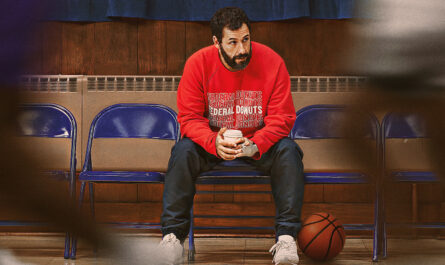When Quentin Tarantino first approached Brad Pitt about starring in his new film Once Upon a Time in Hollywood, Pitt was hesitant. The role of Cliff Booth, a laidback stuntman and friend to Leonardo DiCaprio’s character Rick Dalton, was not the leading man part that Pitt had become accustomed to throughout his decades-long career. After some careful consideration and conversations with Tarantino, however, Pitt agreed to take on the supporting role. His journey to saying yes illustrates his continued desire to take artistic risks and work with top-tier directors like Tarantino.
Pitt’s Initial Hesitation
By 2019, Brad Pitt was an undisputed A-list movie star. He had headlined numerous blockbuster films ranging from action flicks like Mr. & Mrs. Smith to thought-provoking dramas like The Curious Case of Benjamin Button. When Tarantino first told him about Once Upon a Time in Hollywood and the role of Cliff Booth, Pitt admits he originally thought, “I’m not your guy.”
Unlike Rick Dalton, the washed-up TV star main character played by DiCaprio, Cliff Booth was a supporting player. For Pitt, who was used to being the focal point of movies, the idea of taking a backseat was admittedly hard to swallow. “It was that thing where I didn’t realize what I was being offered,” Pitt later told the New York Times.
His hesitation makes sense when looking back at Pitt’s A-list rise. After breakout roles in films like Thelma & Louise and A River Runs Through It, Pitt hit true superstardom playing leading men like Achilles in Troy and Rusty Ryan in Ocean’s Eleven. For two decades, he was one of Hollywood’s most bankable stars precisely because his name alone could draw audiences into theaters.
Weighing Artistic Fulfillment vs. Stardom
Even though he had some initial reservations, Pitt also felt drawn to the role of Cliff Booth precisely because it was a change of pace for him. It would allow him to shine not through movie star charisma, but through a nuanced, grounded performance.
Throughout his career, Pitt has continuously prioritized working with directors like Tarantino who spark his artistic interest. He seems to care more about fulfilling creative roles than chasing box office success or widespread fame. For instance, some of his most acclaimed performances have come from smaller indie films like Tree of Life and Moneyball.
Pitt himself has spoken openly about this tension between mainstream success and creative expression. “It’s a fork in the road,” he told GQ in 2017. “What is true value? What is it that you’re really chasing? I find myself obsessing over quality and craftsmanship.”
His attraction to niche artistic projects explains how even after decades in the spotlight, Pitt remains dedicated to taking risks and avoiding complacency. Once Upon a Time in Hollywood represented another chance to step outside his comfort zone with a director he deeply admires.
Reuniting with Tarantino
Pitt’s history with Quentin Tarantino made the decision even more enticing. The actor first worked with the distinctive auteur director on the World War II epic Inglourious Basterds. Pitt played Lt. Aldo Raine, an American officer leading Jewish soldiers on a mission to hunt down Nazis. He relished the opportunity to deliver Tarantino’s hyper-stylized dialogue and immerse himself in the director’s unique vision.
Both Pitt and critics considered his work in Inglourious Basterds some of the best of his career. He earned his first Oscar nomination for the role, establishing his capabilities as a serious dramatic actor. The film also grossed over $300 million worldwide, proving Pitt could balance artistry with mainstream appeal.
Reuniting with Tarantino would allow Pitt to recapture the artistic fulfillment he first experienced on Inglourious Basterds. It would also grant him the chance to work with Leonardo DiCaprio, his co-star in Once Upon a Time in Hollywood, for the first time. Pitt and DiCaprio had become friends over the years but had strangely never acted alongside one another despite both being A-listers. The opportunity to finally share the screen was hard for Pitt to pass up.
Embracing the Supporting Part
Even after initially hesitating about playing a supporting character, Pitt came around to seeing the value of the role. He realized that playing Cliff Booth would challenge him in new ways and force him to rely more on technical skills than natural charisma. Tarantino further highlighted that in the role, Pitt would get to “delve into deep, dark waters” surrounding Cliff’s mysterious past.
The director’s vivid description of Cliff as a flawed, complex character convinced Pitt that this supporting part could provide the same fulfillment as a typical Hollywood leading man. Though Pitt acknowledges that his ego had to make adjustments, in the end, he relished the chance to tell a different story.
“I’m behind the eight ball right off the bat if I gotta rely on my own shit,” Pitt admits regarding playing second fiddle to DiCaprio. “I gotta find something, I gotta have some tricks, I gotta do something to make this pop.”
Approaching Cliff Booth as a craft challenge rather than an exercise in vanity freed Pitt up to deliver one of his most textured, engaging performances. The nuances he brings to the role, including Cliff’s laidback swagger, loyalty to Rick, and hints of a dark past, perfectly complement DiCaprio’s broader portrayal of Rick Dalton. Rather than worrying about not being the clear lead, Pitt learned to appreciate the supporting part Tarantino offered him.
Pitt’s Own Hollywood Journey
In another meta layer, Pitt felt a personal connection to the plight of Rick and Cliff as two fictional show business veterans struggling with irrelevance. He saw parallels to his own career in an industry where aging stars are so often discarded and overlooked.
“There’s a sadness in it,” Pitt acknowledged when discussing Rick and Cliff’s trajectories. “Hollywood tends to chew up the fancies of the day, spit ’em out, go after the next hot thing.”
Having lived through multiple phases of his Hollywood career, Pitt understood firsthand the fickle tides of Tinseltown. He rose to stardom in the 1990s as a heartthrob only to make intentional shifts towards more character-focused work. Maintaining relevance across decades proved challenging, an experience Rick and Cliff also grapple with in the film.
These real-life connections encouraged Pitt to reflect on his own Hollywood journey. They made the fictional story feel personally meaningful, rather than just another movie project. Pitt felt invested in telling this story truthfully, guided by his own memories of what persevering in Hollywood demands.
Saying Yes to Tarantino’s Vision
Even though Brad Pitt wavered at first about taking on a supporting role, he ultimately could not resist the opportunity Once Upon a Time in Hollywood offered. Along with getting to work with DiCaprio and Tarantino, Pitt remained attracted to the unique story showcasing strong friendship against the backdrop of Hollywood’s golden era.
Most compellingly, Pitt realized Cliff Booth would push him as an actor. Portraying the character’s complexities and loyalty required both natural talent and technical skill. Pitt relished the challenge of bringing Tarantino’s words to life in an impactful way.
Pitt also trusted Tarantino’s unique vision. He knew the director’s style of filmmaking would result in a thought-provoking story brimming with originality. Tarantino made Pitt believe so strongly in Once Upon a Time in Hollywood that moving to a supporting part no longer felt like a step backwards. It offered the next adventurous chapter in Pitt’s career.
“It’s the best,” Pitt declared enthusiastically about Tarantino’s screenplay. “It’s the best.”
His unwavering praise and excitement to get started on the film confirmed Pitt ultimately had no doubts about saying yes. The combination of reuniting with Tarantino, playing a rich character like Cliff, and taking an artistic risk clearly outweighed any lingering hesitations.
Pitt’s leap of faith paid off tremendously based on the widespread acclaim for his performance. He went on to win nearly every Best Supporting Actor award that season, including the prestigious Oscar. Pitt also reaffirmed that even after being a movie star for decades, he remains committed to artistic growth.
Once Upon a Time in Hollywood represents a definitive milestone in Pitt’s Hollywood odyssey. His contemplative journey to saying yes reflects what motivates him as an actor. By taking a chance on a supporting part, Pitt proved his dedication to craft still matters more than stardom.



